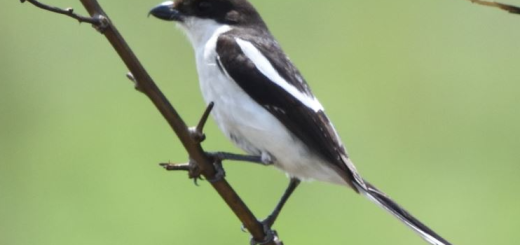Qwa Qwa National Park Birding: Endemics, Habitats, Access and facilities
Qwa Qwa National Park Birding: Qwa Qwa National Park, located in the eastern Free State province of South Africa, is part of the larger Golden Gate Highlands National Park and is known for its stunning scenery, rich cultural history, and diverse birdlife. This region, nestled in the Maloti Mountains, offers birdwatchers a range of habitats that support a variety of bird species, including several endemics. Here’s a detailed guide to birding in Qwa Qwa National Park, covering endemic species, birding habitats, seasonal tips, and practical travel information.

Birding in Qwa Qwa National Park
Endemic and Notable Bird Species
Qwa Qwa National Park is home to a number of bird species that are either endemic to South Africa or to the wider Southern African region. Some of the notable and endemic birds you might encounter include:
- Drakensberg Rockjumper (Chaetops aurantius)
- Ground Woodpecker (Geocolaptes olivaceus)
- Southern Bald Ibis (Geronticus calvus)
- Cape Vulture (Gyps coprotheres)
- Bearded Vulture (Gypaetus barbatus)
- Mountain Pipit (Anthus hoeschi)
- African Rock Pipit (Anthus crenatus)
- Buff-streaked Chat (Campicoloides bifasciatus)
- Malachite Sunbird (Nectarinia famosa)
- Gurney’s Sugarbird (Promerops gurneyi)
These species are often associated with the high-altitude grasslands, rocky outcrops, and montane habitats found within the park.
Qwa Qwa National Park Birding Habitats
Qwa Qwa National Park offers a range of habitats that support its diverse bird population:
- Montane Grasslands: The high-altitude grasslands are home to species like the Mountain Pipit, African Rock Pipit, and Buff-streaked Chat. These open areas provide excellent opportunities for spotting birds that thrive in cooler, elevated environments.
- Rocky Outcrops and Cliffs: The park’s rocky terrain is ideal for species such as the Drakensberg Rockjumper, Ground Woodpecker, and Cape Vulture. The cliffs are particularly important for raptors, including the Bearded Vulture and Verreaux’s Eagle.
- Montane Forests: Scattered patches of montane forest within the park support a different array of birdlife, including sunbirds and other small passerines.
- Wetlands and Rivers: The rivers and wetlands in the park attract waterbirds and waders, such as the Southern Bald Ibis, as well as other species that depend on these aquatic habitats.
Seasonal Birding Tips
Summer (November to February)
- Breeding Season: Summer is the peak breeding season for many bird species in the park. This is an excellent time to observe nesting behaviors and the feeding of chicks.
- Migratory Birds: The park sees the arrival of summer migrants, increasing the variety of species present.
- Increased Bird Activity: Early mornings and late afternoons are the best times to spot birds, as they are most active during these cooler parts of the day.
Autumn (March to May)
- Transition Period: As temperatures begin to cool, birds prepare for winter, and some migratory species start to depart.
- Good Visibility: The cooler, clearer weather of autumn makes it easier to spot and observe birds.
Winter (June to August)
- Resident Species: Winter birdwatching focuses on resident species, as most migratory birds will have left the area.
- Raptors: Raptors are more easily seen during winter as they soar over the park’s open landscapes in search of prey.
Spring (September to October)
- Spring Activity: Birds become increasingly active as they prepare for the breeding season. This period is marked by the return of migratory species and the beginning of courtship displays.
- Ideal Weather: Spring offers mild temperatures and a resurgence of bird activity, making it an excellent time for birdwatching.
Qwa Qwa National Park Birding Travel Information
Access and Facilities
- Location: Qwa Qwa National Park is located near the town of Phuthaditjhaba in the eastern Free State, within the larger Golden Gate Highlands National Park.
- Access: The park is accessible by road from major cities like Johannesburg and Bloemfontein. It is approximately 320 km from Johannesburg, making it a 3.5 to 4-hour drive.
- Entry: Visitors can enter the park through the main gate at Golden Gate Highlands National Park. Entry fees apply.
- Opening Hours: The park is open daily from sunrise to sunset.
- Accommodation: Accommodation options range from camping sites to self-catering chalets and lodges within the Golden Gate Highlands National Park.
- Facilities: The park has basic facilities including picnic areas, restrooms, and information centers. Some areas within the park are equipped with bird hides.
Qwa Qwa National Park Birding Tips for Visiting
- Best Times for Birding: Early morning is the best time for birdwatching, as birds are most active during this period. Late afternoons can also be productive, especially for observing raptors.
- What to Bring: Binoculars, a camera with a zoom lens, a local bird field guide, warm clothing (even in summer, as mornings and evenings can be chilly), sunscreen, and plenty of water.
- Weather Considerations: The park’s high altitude means the weather can be unpredictable, with sudden changes in temperature and occasional snow in winter. Always check the weather forecast before visiting and be prepared for cold conditions.
Qwa Qwa National Park Birding Conclusion
Qwa Qwa National Park offers birdwatchers a unique opportunity to explore high-altitude habitats rich in endemic and notable bird species. With its dramatic landscapes, diverse birdlife, and accessible facilities, it’s a must-visit destination for anyone interested in birding in South Africa. Whether you’re a seasoned birder or a casual nature enthusiast, the park provides a rewarding experience with its stunning vistas and the chance to see some of the country’s most iconic birds in their natural habitat.


